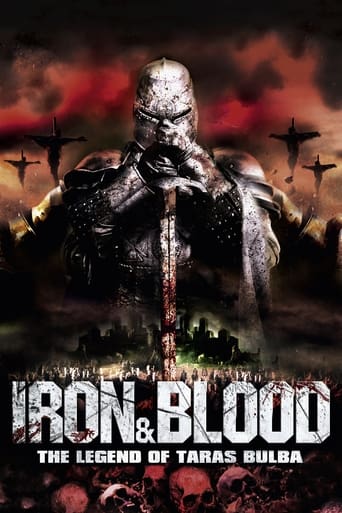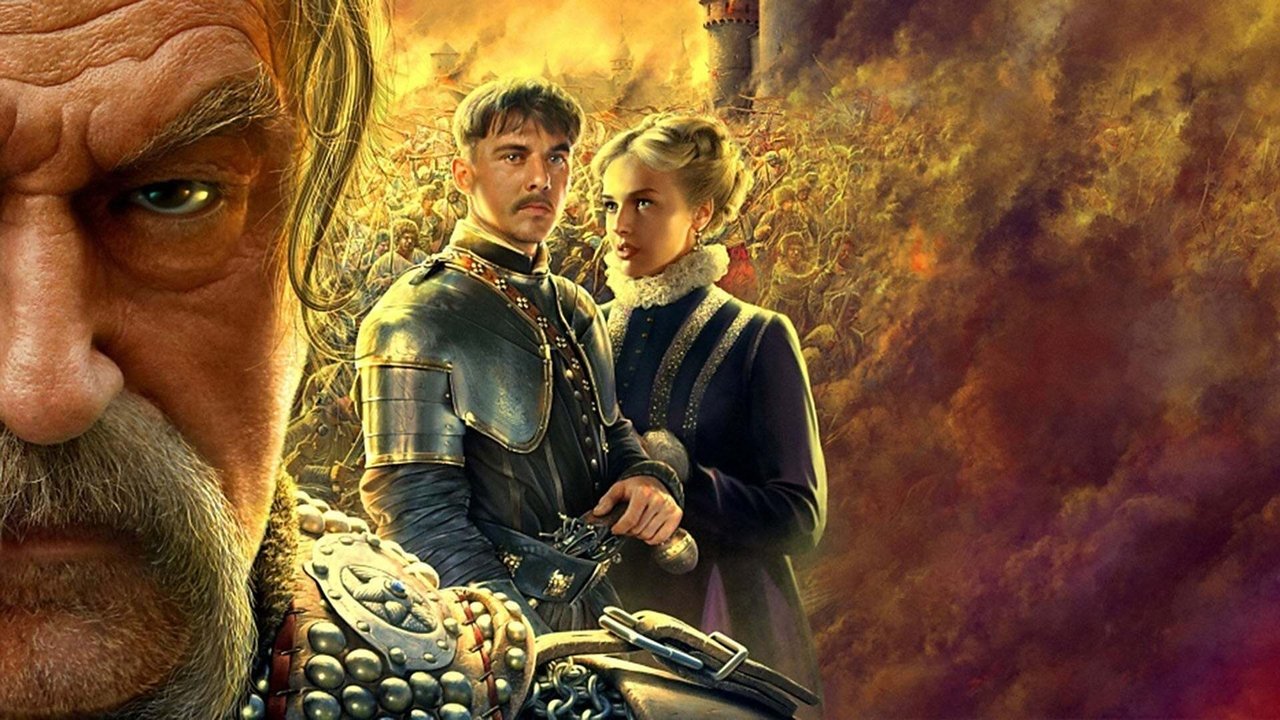hte-trasme
I've seen three other films by Vladimir Bortko -- adaptations on "Heart of a Dog" and "The Master and Margarita" by Bulgakov and "The Idiot" by Dostoevsky. These were works that were close to my heart, and I thought Borko did a fantastic and mindful job of recreating them for the screen. Here he seems to have been given a much bigger budget, possibly a set of orders from the Russian government, and the short novel "Taras Bulba" by Gogol -- a piece of literature that didn't resonate with me nearly as much as the three aforementioned ones. While I loved some of Gogol's other stories, "Taras Bulba" struck me as mostly overblown, thoughtless nationalism, which didn't sit well with me. I didn't much care for this film either, so to be perfectly fair that could be because Bortko faithfully reproduced a book that I didn't love in the first place. Everything revolves around the inclusion of battle scenes and dead-serious scenes about going to battle, and it is assumed without saying that of course we will be rooting for the Cossack's over the Poles. Maybe we will be and maybe we won't, but using that as an assumption to make the film work means it's rooted in pure nationalism and nothing more. If that's alright with you, then fine, but it's not a substantive ideology. Even if we take it as given, there are few too many scenes of dying people who use their last breath to give a heartfelt speech about how the Cossack soul will never be vanquished. There are plenty of enormous pitched battle scenes with many very bloody wounds shown. The visual work on this is impressive, but it seems empty without a fuller context. The events of the plot seem entirely constructed to allow for more speeches about Cossack national spirit to be worked in, and as such are spread pretty thin. The result is that odd duck -- an action packed movie that is actually rather slow-moving. The up side is that there are some very good performances, especially from Bogdan Stupka and Igor Petrenko. They understand the material give performances that are as warlike and humorless as possible. I'm not an expert in the era of history on which Gogol based the source novel for this film, so I can't really address what has been brought up many times here -- the potential incongruity of the Cossacks mentioning Russia in their speeches and speaking Russian (as opposed to other characters, who speak Ukrainian with voice overs). But I think there is more nationalism than just Gogol's at work here, on the whole. A lot of technical skill and passionate acting went into this. Unfortunately, it's a lot of sound and fury signifying nothing but blind patriotism. That might make it a good watch for if you're about to go and kill some Polish people with your trusty sword today and need inspiration, but it doesn't make it a good film.
Tony Heck
"May they all know what brotherhood means on Russian soil." The true account of Taras Bulba (Stupka), a Ukraine Cossack who helped to defend his homeland from the Poles in the 16th century. This is one of the best foreign movies that I have seen. The movie opens with a "Braveheart" like speech, then we flash back to what got him in that position. The movie then begins to take shape and tries to cover every conceivable aspect it can. Love story, fighting, father/son tension, and the quest for freedom. Much like as in "Saving Private Ryan" the movie is bookended by very intense fighting scenes. This is another movie that is not meant for queasy viewers. The torture scene toward the end makes the "Braveheart" one seem tame. There is so much in this movie and I could go on and on about the aspects of why I liked it, but it's best to just watch it and see for yourself. Very, very well done. Overall, a fantastic foreign movie that has some of the most intense battle scenes I have seen in a long time. I give it an A-.Would I watch again? - I might, but not for awhile.*Also try - Agora & Braveheart
fedya_brat
Taras Bulba the movie had very great deep meaning to it, very good actors, one of my favorite movies now. But the fighting scenes were bad, guess they ran out money when they bought too many expensive actors and actually filmed the movie in Zaporozhia, Ukraine, unlike many Hollywood movies where they are filmed in a studio the whole time.My father called this movie Bumer 3, if you haven't watch those movies watch them, he called them this because they have very great meanings but are ruined because not enough money or modern use of directing is used in these movies.Overall this movie is great and I hope you see it.
Yuriy Dekabrov
I'd like to start off with what is good in this movie, for the list will be infinitely shorter than what is bad.Good points: 1. Bogdan Stupka ('Taras Bulba') performance. His presence in the movie is the only excuse to see the movie in the first place.2. Attention to detail in costumes and observing cossack traditions. The movie can be a good reference for re-enactors of Zaporizka Sich and Rzech Pospolita of XVI century.Bad points: 1. Patriotic speeches comprise over 50% of the total movie time. Every single cossack having at least one line in the movie, had to proclaim a speech about the never-ending glory of orthodox faith and Russian land before dying. I mean, it is OK once. It can be touching. However, in Taras Bulba there are 5 or 6 nearly identical speeches within 5 minutes span. Around the third speech/death sequence it gets really boring and you think 'will you please just shut up and die?' The word 'Russian' appears in every other sentence of the movie. I mean, I know those are Russians who make the movie with the aid from the government. I bet, anyone from outside USSR will return from the theater with the firm belief those were Russians fighting Poles. But hey, the entire thing actually happens in Ukraine! Yet, reference to Ukraine is carefully avoided and quickly mentioned only twice in the entire movie.2. Battle scenes. The movie attempts at Braveheart realism with close-ups of wounds. Which would have been OK, if they haven't shown close-ups for nearly EACH SINGLE CUT AND PIERCE in the movie. Coupled with unimpressive execution of one-on-one duels and poorly organized mass scenes (you get the full screen of cossacks and Poles walking (not running!) chaotically without any apparent purpose or sense of direction, it creates seriously sad impression.3. Performance of the younger cast. Vdovichenkov is no longer a criminal from 'the Bumer' (the BMW) but his line 'Ty chto skazal?!' (What have you just said?) was performed in the XVI century church in the same manner as previously at the criminals' meeting in 1990s. Younger son, Andriy (Petrenko) is not nearly as passionate as his father, Taras, (Bogdan Stupka). Yeah, I betray my motherland and my father, because I love you. No big deal.4. Soundtrack is as awful as in Bortko's Master and Margarita.


 AD
AD



